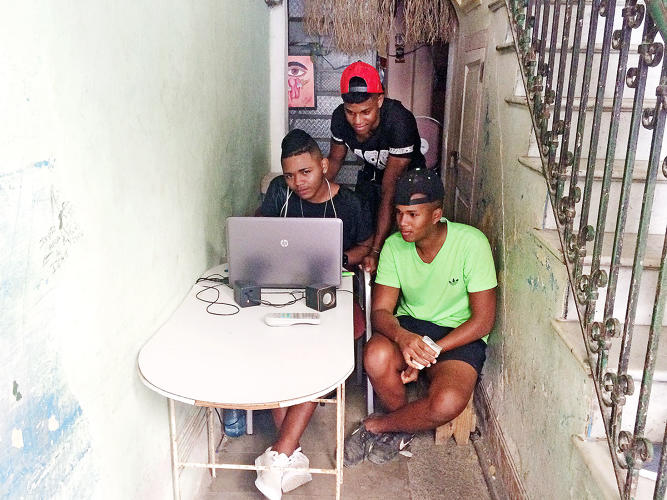What is it?
In Cuba, public internet use is severely restricted, with less than 5% of the population currently online. However, many people are now able to access their favourite web content via hand-delivered “internet” called el Paquete Semanal (the Paquete). Indeed, this service is the only alternative to the web in Cuba, a country where 56 years of communism and the US trade embargo have surely incentivized its citizens to get a little creative.
More specifically, the Paquete is a terabyte of data – a compilation of the latest music, Hollywood movies, TV series, mobile phone apps, magazines, and even a classifieds section akin to Craigslist.
The curated content is delivered every Monday via a complex network of hundreds of anonymous distributors, who are said to work in a manner analogous to that of old-school newspaper delivery boys.
How does it work?
This endeavour appears to be operating outside of any legal Cuban framework, and is clearly in violation of international copyright law. However, it certainly seems to be an adequate means of accessing online entertainment for now. It is said that Cuba’s younger generations have actually been stockpiling PCs, laptops, tablets, and smartphones for when internet access becomes more widely available in the country.
Ana Lauren, a 24 year-old journalist from Havana, has expressed her enthusiasm over the service, saying: “The Paquete Semanal is the accessible form to get videos, music, soap-operas, everything. You can get whatever you want in El Paquete. Every Monday a young man comes here to my house with a portable hard drive and copies the Paquete to my computer. I can copy whatever I want. If I don’t want to copy music this week I don’t have to. I only copy the things and shows that I want to use this week.”
Ana added that she pays between one and two US dollars for the Paquete each week, depending on how much media she copies to her computer.
Other benefits of the service
Additionally, the Paquete has enlarged the scope for new media ventures in Cuba – ones that are accessible only to its subscribers. For example, Antoinette Duquesne is a journalist who writes for one of Cuba’s biggest cultural publications, Vistar. Though expat Cubans and other internationals can access the site online, most of its audience is in Cuba, and reads the PDF version published in the Paquete. Antoinette commented: “We exist on the internet but the Paquete Semanal has such a wide range of distributors and it’s sold all across the country. So, this is the best way for us to connect with our audience.” She added that Paquete has also made way for new job opportunities for journalists.
Advertising firm Atresmedia also leverages the Paquete to enable enterprising Cuban restaurants, photographers and beauty salons to advertise their business for a fee. This is legal, because Cuban laws that disallowed private enterprise were scaled back in 2011. The firm generates the ads, and then inserts them at the end of featured programs in the Paquete.
The Future of the Paquete
This service certainly seems to be working as a temporary fix for one aspect of a larger problem in Cuba. However, there may soon be no more need for it, as Cuban authorities have started to relax their control over internet access. This is probably in response to the increasing interest on the part of giant US corps, like Google, in helping Cuba acquire internet connectivity.






